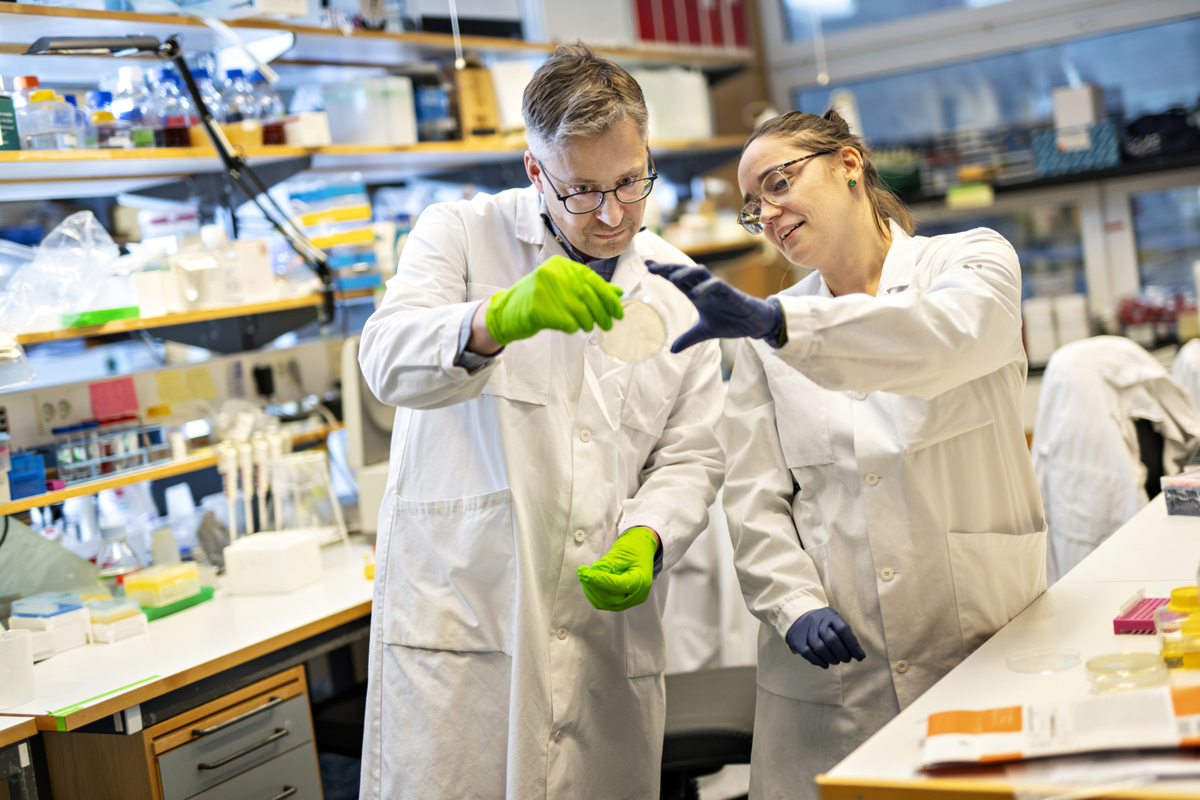Doctoral student in evolutionary ecology
Lund University, Faculty of Science, Department of Biology
Lund University was founded in 1666 and is repeatedly ranked among the world’s top universities. The University has around 47 000 students and more than 8 800 staff based in Lund, Helsingborg and Malmö. We are united in our efforts to understand, explain and improve our world and the human condition.
Lund University welcomes applicants with diverse backgrounds and experiences. We regard gender equality and diversity as a strength and an asset.
Subject description
Biology is a broad subject about all living things. It encompasses everything from processes at the molecular and cellular level to global processes at ecosystem level. The subject is divided into a range of sub-disciplines and specializations. The PhD program at the Department of Biology includes many of these specializations, from molecular biology to applied ecology, from viruses and individual cells to evolutionary biology and global biodiversity. Taking on research studies at the Department of Biology generally means focusing on a delimited part of the research area of biology and may include field studies, experiments, theoretical studies, or a combination of these.
Work duties
The main duties of doctoral students are to devote themselves to their research studies which includes participating in research projects and third cycle courses. The work duties can also include teaching and other departmental duties (no more than 20%).
The Speciation, Adaptation and Co-Evolution research team is recruiting a PhD candidate to work on floral evolution in pollination-generalized plants. The PhD project is part of the POLLCLIM project funded by the European Research Counsil, and the recruited candidate will be part of a larger research team working together towards a better understanding of plant adaptation to changing pollinator assemblages.
The PhD candidate will be part of the research group of Dr. Øystein Opedal, and the Speciation, Adaptation and Co-Evolution (SPACE) research environment at Lund University. The group comprises three PI’s, three senior scientists, five postdocs, two PhD candidates and several MSc students and research assistants interested in the evolutionary ecology of plant-animal interactions.
The PhD candidate will focus on the importance of individual pollinator species in pollination, their behaviour on flowers, and how this varies in time and space. The work will involve extensive field studies, literature study, and statistical modelling. The field studies will focus on landscape-level variation in pollinator assemblages and pollinator phenotypes, and how pollinator phenotypes interact with floral phenotypes to determine the efficiency of pollination. The data from the field studies will be used to develop statistical models linking individual floral traits to pollination performance (e.g. pollen deposition onto stigmas) and in turn reproductive fitness (seed production).
Admission requirements
A person meets the general admission requirements for third-cycle courses and study programmes if the applicant:
- has been awarded a second-cycle qualification, or
- has satisfied the requirements for courses comprising at least 240 credits of which at least 60 credits were awarded in the second cycle, or
- has acquired substantially equivalent knowledge in some other way in Sweden or abroad.
A person meets the specific admission requirements for third cycle studies in Biology if he or she has passed an independent project (for example a degree project) of at least 30 credits in a relevant subject.
Additional requirements
- A MSc in Ecology, Evolutionary Biology or an adjacent field
- Very good oral and written proficiency in English
- Demonstrated ability of independent work
- A valid drivers licence is required as the project is fieldbased
Assessment criteria
Selection for third-cycle studies is based on the student’s potential to profit from such studies. The assessment of potential is made primarily on the basis of academic results from the first and second cycle. Special attention is paid to the following:
- Knowledge and skills relevant to the thesis project and the subject of study.
- An assessment of ability to work independently and to formulate and tackle research problems.
- Written and oral communication skills
- Other experience relevant to the third-cycle studies, e.g. professional experience.
Other assessment criteria
The successful candidate will have a strong background in (evolutionary) pollination ecology, experience with field work, and some experience with data analysis and scientific programming in R or similar software.
Consideration will also be given to good collaborative skills, drive and independence, and how the applicant, through his or her experience and skills, is deemed to have the abilities necessary for successfully completing the third cycle programme.
Terms of employment
Only those admitted to third cycle studies may be appointed to a doctoral studentship. Third cycle studies consist of full-time studies for 4 years. A doctoral studentship is a fixed-term employment of a maximum of 5 years (including 20% departmental duties). Doctoral studentships are regulated in the Higher Education Ordinance (1993:100), chapter 5, 1–7 §§.
Instructions on how to apply
Applications shall be written in English and include a cover letter stating the reasons why you are interested in the position and in what way the research project corresponds to your interests and educational background. The application must also contain a CV, degree certificate or equivalent, and other documents you wish to be considered (grade transcripts, contact information for your references, letters of recommendation, etc.).
| Type of employment | Temporary position |
|---|---|
| First day of employment | Preliminary 2025-03-01 or according to agreement |
| Salary | Monthly salary |
| Number of positions | 1 |
| Full-time equivalent | 100 |
| City | Lund |
| County | Skåne län |
| Country | Sweden |
| Reference number | PA2025/107 |
| Contact |
|
| Union representative |
|
| Published | 17.Jan.2025 |
| Last application date | 16.Feb.2025 11:59 PM CET |

